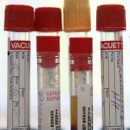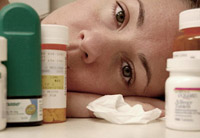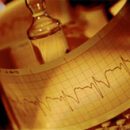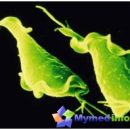What is anaphylactic shock? How to give first aid to a person with anaphylactic shock? Answers to these questions you will find in the article.
Content
What is anaphylactic shock
Anaphylactic shock is primarily a shock - acutely developing
The state of inconsistency of delivery and consumption of oxygen,
characterized by acute insufficiency of blood circulation (acute
circulatory failure), right up to collaptic state,
arising, due to anaphylaxis (excessive reaction of the body
man on the repeated effects of allergen). Anaphylactic reactions
(anaphylactic shock) - threatening life urgent states quickly
developing pronounced vascular collapse.
Anaphylactic shock may be accompanied by such accompanying allergic reactions as:
- The appearance of rashes (focal or spilled nature - urticaria, generalized
hives);
- Fast
the development of swelling of soft tissues (torso, limbs, more often, neck and,
What is especially dangerous, mucous album with possible development
Asphyxia and other.), just as it happens at the post of quinque (angioedema edema);
- Phenomena
bronchospasm (feeling of the lack of air, constraints of the sternum,
mischievous breath, and in the subsequent and exhalation, with the advent of the characteristic
whistling breathing, shortness of breath) - bronchial asthma;
As any sharp insufficiency of blood circulation, and in the subsequent, and
breathing this condition is accompanied by manifestations from
central nervous system - originally a feeling of fear,
anxiety, even excitement, and then dizziness increasing
oppressing consciousness up to coma.
Depending on the intensity of the impact of an allergic factor and
Features of the body's reaction - anaphylactic shock can develop
In the time interval from a few minutes (10-15 minutes) to several
hours.
First aid for anaphylactic shock
Copy help (doctor) should necessarily immediately cause
With initial manifestations of any acute allergic reaction having
increasing nature. Or even with minimal allergic (above
described) manifestations, but accompanied by increased pulse, decrease
(even moderate - 10-20 mm RT. Art.) blood pressure, appearance
Dysfots, bronchospasm, edema
mucous bastard (cough, dysphony - voices, feeling
choking). In general, the rule is such, any patient with acute allergic
The reaction should be examined by a doctor immediately. But, when
Above the described features in addition to acute allergic reaction,
Must be additionally imposed on emergency medical dispatcher to make a decision on emergency medical care
Specialized ambulance brigade.

Remember that an anaphylactic reaction is easier to prevent than to treat. In no case should not wait for the expanded picture of anaphylactic shock in order to
call the ambulance. This is due to his life-degrading nature of the flow. Anaphylactic shock - requires immediate
hospitalization of the patient due to the need to provide him with qualified medical care in the conditions of the resuscitation department.
Given the timing of the development of the state of anaphylactic shock
Resuscitation assistance may be required by this patient already at the stage
Arrival «Emergency» and during transportation
Patients,
What requires the availability of relevant qualifications of brigade personnel
emergency medical care (ability to conduct resuscitation and
Intensive-therapeutic measures) and equipping the machine
Equipment Aid (Cardiomonitor with Pulse Oximeter, Respiratory
Apparatus, set for intubation and tracheo (conic) Tomia), oxygen,
medicines and solutions.
Conducted
Events (anti-inflammatory,
Anti-ebony, respiratory therapy)
do not have to delay or prevent the patient transportation in
hospital. With the exception of short episodes of the time required for
resuscitation activities (heart and intubation massage) if
They cannot for any reason be performed during the movement.
This is due to the fact that all these events do not guarantee fast
stopping the manifestations of anaphylactic shock and do not replace those
capabilities of qualified medical care that are in
Hospital conditions.
Before the arrival of the brigade «Emergency», If possible, it follows:
- isolate
patient from allergen if he is famous (to air the room,
produce its wet cleaning, with a reaction to the bite insect, or on
intramuscular or subcutaneous injection - to handle the wound deterigent and
antiseptic, possibly the imposition of a harness above the place of bite, noting time
Pressing blood flow and cold to the place of bite (injection);
- to put the patient horizontally, with a decrease in blood pressure with a bit raised legs (no more than 15 - 20 degrees);
- observe the patient, if possible, measuring hell, pulse rate, frequency and rhythm of breathing;
- give
he has available or usually accepted desensitizing
(Antihistamine) Means (Tueva, Suprastin, Claritin, Summamp,
Allertek and T.D.).
Should be remembered,
that information representing the value for an ambulance doctor,
which may present the patient, his relatives or relatives, and
Also those who were near the patient during development
Anaphylactic shock, is:
- exact time
began developing an allergic reaction and the time that has passed since
development of certain manifestations from the body of the patient
(appearance of shortness of shortness of shortness of dies, votes, pulse increases, hesitation hell and t.D.);
- Anamnese data on allergic reactions previously observed in the patient and what caused their development;
- A detailed list of the fact that the patient was given and did before arrival
ambulance and when.
The cause of anaphylaxis can be: administration of medicines
(antibiotics and others.); Insect bites (more often stinging); Food products;
pollen; dust; chemical substances; Blood preparations.









